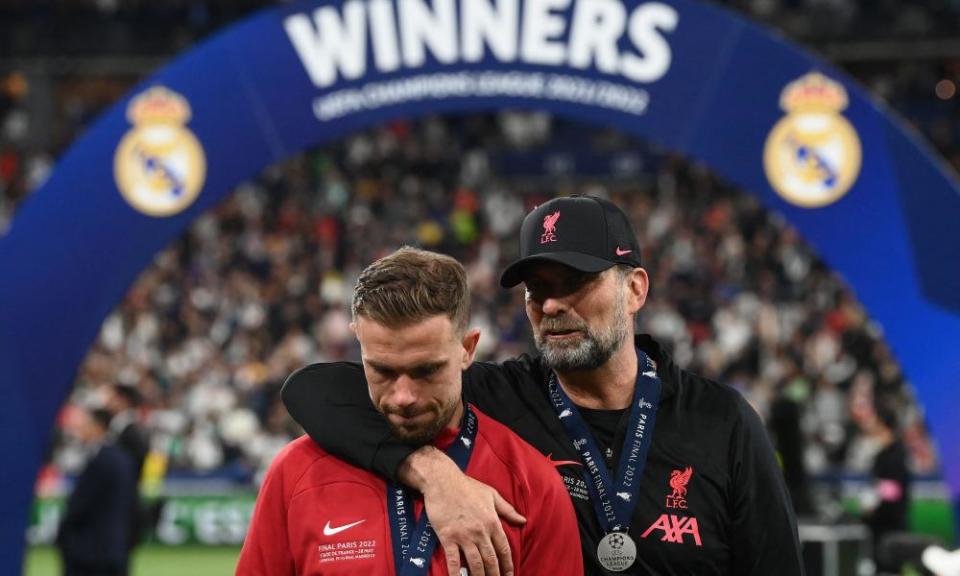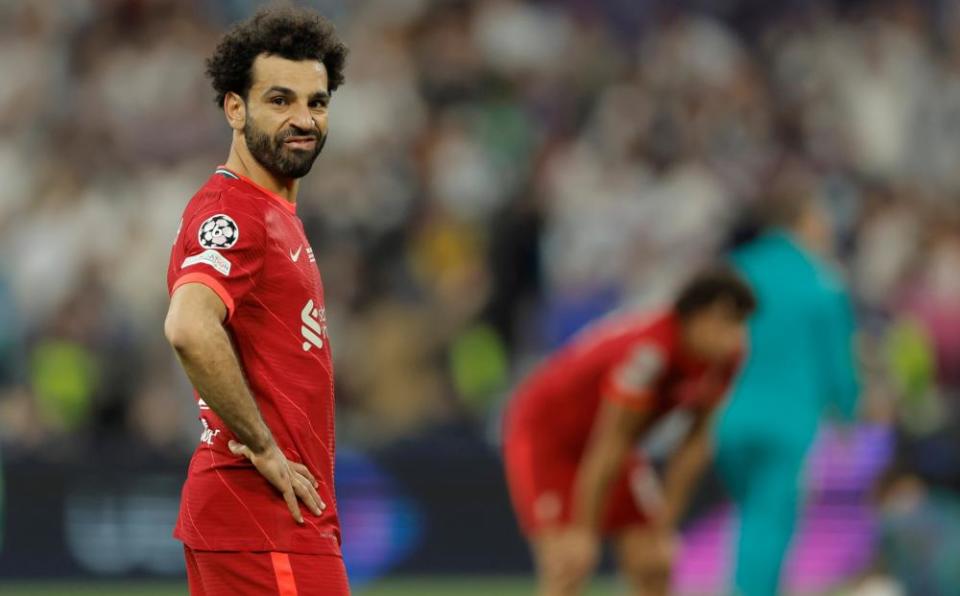The great teams grasp the moment: Liverpool are still short of that title

So what next? Where do Liverpool go from here? This was a season that came agonisingly close to perfection. One fewer goal for Manchester City or one more goal for Aston Villa on the final day of the season and the league title would have been Liverpool’s. One fewer save from Thibaut Courtois and they would have taken the Champions League final into extra time. The Quadruple has never been so close for any club, and yet Liverpool achieved no more than to match the feat of Arsenal in 1992-93 and, with all due respect to Steve Morrow, John Jensen and Andy Linighan, nobody talks about them as one of the greatest sides of all time.
Contexts, of course, change. This is an extremely good team. Jürgen Klopp and the vast team of specialists behind him have created something extraordinary, a thrilling side that, for a net transfer spend less than that of Everton, has managed to keep pace with Manchester City – even if they have beaten them to the title only once.
Related: Trent Alexander-Arnold’s error costs Liverpool but he remains essential | Barney Ronay
This City is a great team, but one put together, from the training facilities to the backroom staff to the manager to the squad, at enormous expense. And City, unlike most previous exercises in mega-investment in football, has been constructed extremely cleverly; in recent years there have been no ego signings, little wastage.
To remain within touching distance of that on a net transfer spend of only £200m over six years is remarkable. And yet the financial structures that count against Liverpool in that regard, as they look up, also play to their advantage as they look down. They are one of England’s elite, by dint of their history and the investment of Fenway Sports Group (which, lest anybody forget, was only too keen to leap aboard the Super League project a year ago). Just as it’s impressive that they can continue to hound City, so there must be a sense that they ought to be better than most of the Premier League.

Klopp has, understandably, been largely disdainful of the domestic cups in the past. Winning any silverware is significant, and they did have to beat City and Chelsea in the semi and the final this season, but brushing aside Shrewsbury, Cardiff, Norwich and Nottingham Forest is what they should be doing. And so we come to one of the paradoxes thrown up by modern football and its finances: Liverpool’s greater achievement is less the trophies than the staying in contention in the league; it is less what they have won than what they have not quite.
Which leads to another point about greatness, which is that winning is part of greatness. Klopp’s genius is clear. He has created (a second) team in his image, has been one of the two key figures in defining modern football, and he has done so both in the Bundesliga and the Premier League with fewer resources than his biggest rival. But it is curious how few finals he wins.
Related: Jürgen Klopp proud of ‘special season’ and vows Liverpool will bounce back
He lost six finals between 2013 and 2018. This season, although Liverpool ended up with the League Cup and FA Cup, they needed penalties in both (for which Klopp must take credit, having brought in neuro11, a German neurological company, to help; to score 18 out of 19 penalties is not definitive proof it has worked, but it’s a pretty decent hint). They did not score in five and a half hours of play in finals; Klopp is too focused on detail, too relentless in his search for an advantage not to be at least a little concerned by that, particularly in the context of the other final disappointments.
There is more. Liverpool did not beat any of the other sides who qualified for the top four in the league this season. Could it be that their style, the high-intensity turnovers, are less effective against opponents who are better on the ball, who are less prone to panic amid the storm? Perhaps that is why Thiago Alcântara has come to seem so vital for Liverpool, as a player who can add that little extra quality, the deft touches that can unlock the best defences. That Klopp played him from the start when there were so many doubts about his fitness, when he had warmed up separately to the other starters, suggests just how essential he sees him as being; given his ineffectiveness, that was probably an error.
The oddity of Saturday was how quickly the game settled into its pattern, how both seems seemed to accept their roles. The sense was of Liverpool lacking a little precision, not quite having the verve that characterises them at their very best. But in truth that was not a great surprise.
Again, this is an issue of modern football, in which the margins for the elite are so absurdly fine, but Liverpool have not felt entirely at their best since the March international break – a period in which they played 16 games, winning 11 and losing only one (and of the four draws, one was the FA Cup final, which they won on penalties; one was in the second leg of a Champions League tie that they had already won comfortably, and one was against City).
And again it was a case of Liverpool struggling to open up high-class opposition. This is a Liverpool who achieved the second-highest points total not to win the league. They are absurdly good. But to be great, to win the biggest prizes, to beat City, they may need just a little more guile.

 Yahoo Movies
Yahoo Movies 